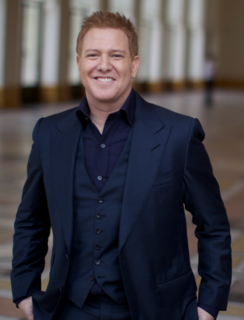A Quote by Ryan Kavanaugh
You look at any industry - you're not innovating unless people are questioning it. If you're innovating, you're doing something nobody's done before, which means you're re-writing rules, resetting boundaries, re-creating systems. And that means the traditional industry is going to question it.
Related Quotes
When I start writing songs, and they come easily, I'm always very suspicious. That usually means they're reminding me of something I've already done before. When the songs become unsettling, and I feel anxious about what I'm doing, that usually means it's going to be more interesting later on when we actually record the stuff.
When people in organizations feel too secure, it's because there aren't any significant outcomes as a result of what they do. Whatever you do, nothing much different happens. This also means there are no important pay-offs if you risk by innovating. As there are no rewards for taking risks, then there's no sense of push in that institution's culture.
A tobacco industry has been a fairly linear and predictable industry. You know what's going to happen every year. You know from time to time you are going to have a tax increase, you are going to have regulatory restriction, but, as it applies to everybody, I think we are doing very well. But now it's much more technology-driven. Competitors other than our traditional competitors can come in, whether legitimate or fly-by-night ones, and you have to anticipate all those things. The whole organization has to gear up to this new reality and these new competitive rules around it.
When you start out on a career in the arts you have no idea what you are doing. This is great. People who know what they are doing know the rules, and know what is possible and impossible. You do not. And you should not. The rules on what is possible and impossible in the arts were made by people who had not tested the bounds of the possible by going beyond them. And you can. If you don't know it's impossible it's easier to do. And because nobody's done it before, they haven't made up rules to stop anyone doing that again, yet.
The daily writing practice is something I used to hear batted around a lot in writing workshops - which is probably why I dropped out of all the writing workshops. I wish I could take credit for innovating a new approach to writing, but the truth is that I've managed to write books despite myself. I'm lazy and ungovernable and undisciplined, but I do have a lot of anxiety about never amounting to anything and ending up as a bag lady.
There are lots of lessons to learn from Amazon. Never stop innovating or questioning the fundamentals of your business. Disrupt yourself before others do. Continually motivate employees so that they never get too complacent - see Yahoo, AOL and many other Internet companies for evidence of what happens when they do.
... there's a large core of powerlessness which is balanced against the unwritten contract that says that if you behave, you'll be okay. No wonder people pay so much attention to knowing the rules, to knowing the right people, to not making waves, to never making errors -- to not risking, trying, innovating.
So for everything I do, I'm very clear about what I'm doing, and I tell people what it's about. They get a sense of what I'm thinking. I don't let people think I'm going to write something in praise in the meatpacking industry, and then they read it and it's actually attacking the meatpacking industry.


































